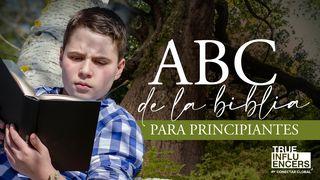The Sabbath PracticeMuestra

Day 2: Rest
A thousand years before Christ, the writer of Ecclesiastes said, “The eye is not satisfied with seeing.” A more recent philosopher simply said, “I can’t get no satisfaction.”
The word used by the writers of the Bible to name this inner disquiet is “restlessness.” We chase more money, more clothes, more things, more square feet, more experiences, more relationships, more, more, more. But we’re always left dissatisfied.
Is there a way off this hamster wheel of restlessness?
Yes, through the practice of Sabbath. Through Sabbath, we war against the cancerous restlessness of our age and, instead, take on the easy yoke of Jesus our Rabbi to find rest for our souls.
But that rest isn’t just a retreat from the world. It’s a radical, countercultural act of resistance to the powers and principalities at war with God and his Kingdom of peace.
Yesterday, we read God commanding the practice of Sabbath in the ten commandments. But when Moses gives the ten commandments to the next generation in Deuteronomy, he talks about Sabbath differently. At the end of the Exodus passage, it’s all about how God rested on the seventh day and blessed it, making it holy. At the end of the Deuteronomy passage, it’s saying to remember that they were slaves and God freed them. At Sinai, Sabbath is about rhythm, imitating the pattern God wove into the world. But in Deuteronomy, it’s about resistance.
In the Exodus story, there’s all sorts of language about restlessness, things like “Get back to your work!” and “Make them work harder so that they keep working” (Exodus 5v4, 9).
Sound familiar?
In the West, we work more than ever before. Even despite all the technological progress of “labor-saving devices,” leisure time is down 37% since the 1960s. We work more than ever before, and we have more than ever before, but the data shows that happiness is declining, not rising.
It’s Egypt all over again. And it’s so easy for us to get sucked in.
But rest is an act of resistance. To practice Sabbath is to draw a line in the sand against all external and internal forces that would encroach upon your apprenticeship to Jesus and formation into his image. It’s to say “this far you shall go, but no further.” It is to defy some of the most powerful forces known to humanity as an act of non-cooperation done in love for community, for the poor, for the Earth, and ultimately for God himself.
So where are you feeling restlessness in your life? Where are you still grasping for that next thing that will finally make you happy? Where can you put that line in the sand?
Will you resist?
Escritura
Acerca de este Plan

Are you tired? In a culture where low-grade exhaustion is the new normal, Jesus invites us into a life of rest in him. Through the practice of Sabbath, we practice entering this promised rest. This plan, Practicing the Way, by John Mark Comer, provides an introduction into the practice of Sabbath, featuring key ideas and practical suggestions for you to find rest for your soul.
More
Planes relacionados

ABC De La Biblia Para Principiantes

ABC De La Oración ... Para Principiantes.

¡Levántate! 7 Claves Para Levantarte Y Seguir.
Marcas De Un Discípulo

Confiando en Los Propósitos De Dios

Que El Mundo Crea

La Gracia. 7 Claves Para Vivir en Plenitud.

Testigos Del Milagro: La Primera Navidad
